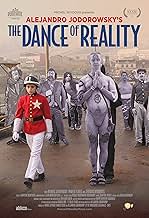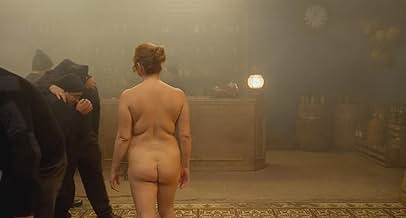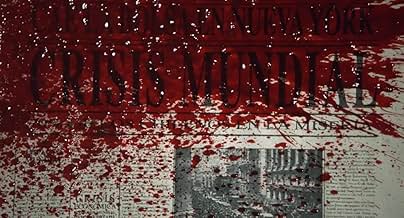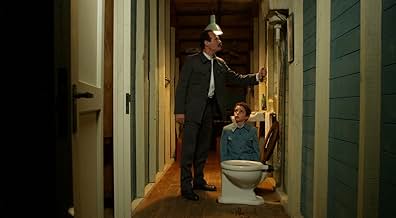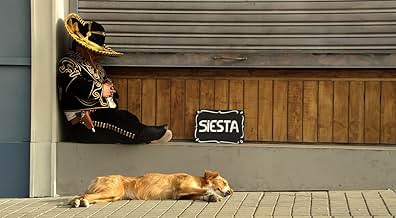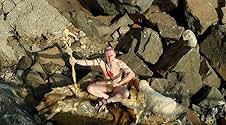In una cittadina cilena, il figlio di una coppia di emigrati, composta da un severo padre comunista e da una madre amorevole ma debole, cerca di farsi strada in una società che non comprende... Leggi tuttoIn una cittadina cilena, il figlio di una coppia di emigrati, composta da un severo padre comunista e da una madre amorevole ma debole, cerca di farsi strada in una società che non comprende le loro origini ebraico-ucraine.In una cittadina cilena, il figlio di una coppia di emigrati, composta da un severo padre comunista e da una madre amorevole ma debole, cerca di farsi strada in una società che non comprende le loro origini ebraico-ucraine.
- Premi
- 5 vittorie e 9 candidature
- Theosophist
- (as Cristobal Jodorowsky)
- Jorobada
- (as Alizarine Ducolomb)
Trama
Lo sapevi?
- QuizThis was Alejandro Jorodowsky's first movie in 23 years.
- Citazioni
Alejandro as a child: The darkness is swallowing everything. It's going to devour us.
Sara: Alejandrito, do I love you?
Alejandro as a child: Yes, Mama.
Sara: How much?
Alejandro as a child: From the sky to the earth.
Sara: This is not my love, it comes from God. I am merely the sender. As God creates all, so we all radiate His love. My son, the darkness loves you as much as I do, for it is God's shadow.
- ConnessioniEdited into Poesia senza fine (2016)
He also always appears in interviews with an infectious, joyful personality even when he talks about very serious things like art and living and good life and being screwed over in the movie industry (see Jodorowsky's Dune for more on that). But here, he gets to return as a filmmaker, after an absence of decades, and the results? An overused word is appropriate here: fantastic.
The Dance of Reality is Jodorowsky's (for him) straight-forward look at what it was like for himself, and his father Jaime, to go through the late 1930's in Chile - but in the only way that Jodorowsky can as one of the last old-school surrealists (by this I mean he could pal around with Salvador Dali like it was nothing). The movie might appear to be two movies: the first half more-so considers how rough things were for poor little 'Alejandrito', especially under rather Jaime Jodorowsky's strict "Be a Man" philosophy of parenting (and, of course, Jodorowsky cast his son, Brontis, to play his father, and the director appears as "himself" in certain parts). The boy has long locks of golden hair, and these get cut off (rather, the wig comes off!) and the boy has to deal with being tickled - "Don't laugh!" - slapped, dentistry without anesthesia, and being picked on by fellow boys for being Jewish.
The movie might appear to be all about the kid from the first half... but then Jodorowsky does something really interesting - though it's bound to split audiences - as he really follows the father in the second half (with a couple of trips back to the son, and the mother Sara who sings every one of her lines of dialog). It's both the son AND the father's story in Dance of Reality, and it's touching how the director charts what is kind of a tale of humbling for this father character as he tries, as the staunch anti-dictator Stalin-supporting Communist he is, to kill the ruler of Chile Ibanez, and fails, and goes through many trials and tribulations.
Often, we see, with his hands curled in a permanent state of vegetation! Dance of Reality is filled with heart and passion, and what's great about it is how much the director doesn't cheat any of the emotions. Another filmmaker, maybe one more self-conscious or ironic, might play for a wink some of these scenes where the mother talk-sings in her operatic tones and the father beats the boy or the town-folk go about in their crazy ways (sometimes with masks, sometimes it's amputees up in arms, pun intended), or the clowns or lepers or other freaks who the director loves to see on screen.
Jodorowsky doesn't play like that; for him, this is all magical realism, surrealism, any-kind-of-WTF-ism you want, but it's not something that is taken precisely as a goof, if that makes sense. Yet it's that which makes many scenes delirious, and deliriously funny. The cure for leprosy, for example, is a howler of a scene, even (or because) as it doesn't make logical sense.
Sense? Hey, it's this filmmaker, why not go along for the ride? And it's actually more straightforward and stream-lined than the acid-trip fever dreams of his early/notorious midnight movie work. Here, it's more reflective - it's hard not to compare of course to it's cousin, Fellini's Amarcord, also in the 1930's, about fascism, and big breasts. But I'll continue returning to this film if only for its love of filmmaking, of bringing great big colors on the screen - I don't know how the color timing worked or how much was used, but every color here is vibrant and alive, as if the director were still remembering this like it was today, and it feels that way - and how much the family unit it explored without full-on cynicism. You can look at this father-mother-son and they have their problems and issues (putting it lightly), but... they're real and painful and experience pain and the horrors of society, and persevere.
This is a powerful work of brazen, uncompromising, funny-sad-strange-illuminating art for those open to the experience.
- Quinoa1984
- 22 nov 2014
- Permalink
I più visti
- How long is The Dance of Reality?Powered by Alexa
Dettagli
- Data di uscita
- Paesi di origine
- Siti ufficiali
- Lingua
- Celebre anche come
- The Dance of Reality
- Luoghi delle riprese
- Aziende produttrici
- Vedi altri crediti dell’azienda su IMDbPro
Botteghino
- Budget
- 3.000.000 USD (previsto)
- Lordo Stati Uniti e Canada
- 293.680 USD
- Fine settimana di apertura Stati Uniti e Canada
- 24.768 USD
- 25 mag 2014
- Lordo in tutto il mondo
- 558.636 USD
- Tempo di esecuzione2 ore 13 minuti
- Colore
- Mix di suoni
- Proporzioni
- 1.85 : 1
Contribuisci a questa pagina


![Guarda Tráiler [OV]](https://m.media-amazon.com/images/M/MV5BYTE4NDM1YWItYTRmNi00OGQyLWJhZTYtYTY5OTU5NTJlOGY4XkEyXkFqcGdeQXRyYW5zY29kZS13b3JrZmxvdw@@._V1_QL75_UX500_CR0)



